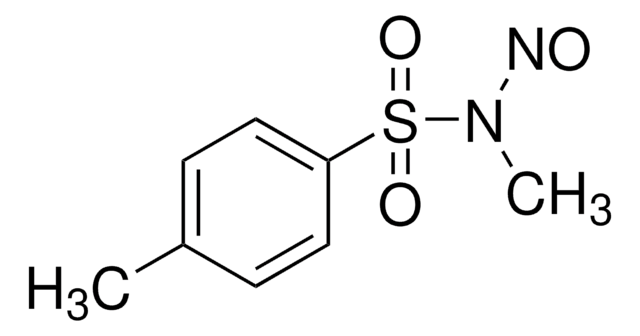306363
Silicic acid
powder, −80 mesh
Iniciar sesiónpara Ver la Fijación de precios por contrato y de la organización
About This Item
Número de CAS:
EC Number:
MDL number:
UNSPSC Code:
12352301
PubChem Substance ID:
NACRES:
NA.21
Productos recomendados
form
powder
loss
<16% loss on ignition
particle size
−80 mesh
SMILES string
O[Si](O)=O
InChI
1S/H2O3Si/c1-4(2)3/h1-2H
InChI key
IJKVHSBPTUYDLN-UHFFFAOYSA-N
¿Está buscando productos similares? Visita Guía de comparación de productos
Application
Silicic acid is a hydrophilic inorganic material that can be used as a zirconium phosphate additive to enhance proton conductivity in the inorganic-organic composite membranes. It can also be used as a binder for the electrodes of thermal batteries.
Storage Class
11 - Combustible Solids
wgk_germany
WGK 3
flash_point_f
Not applicable
flash_point_c
Not applicable
Certificados de análisis (COA)
Busque Certificados de análisis (COA) introduciendo el número de lote del producto. Los números de lote se encuentran en la etiqueta del producto después de las palabras «Lot» o «Batch»
¿Ya tiene este producto?
Encuentre la documentación para los productos que ha comprado recientemente en la Biblioteca de documentos.
Los clientes también vieron
The Intimate Role of Imidazole in the Stabilization of Silicic Acid by a pH-Responsive, Histidine-Grafted Polyampholyte.
Demadis KD, et al.
Chemistry of Materials, 27(19), 6827-6836 (2015)
Silicic acid polymerization catalyzed by amines and polyamines.
Mizutani T, et al.
Bulletin of the Chemical Society of Japan, 71(8), 2017-2022 (1998)
Paul Curnow et al.
Biochemistry, 51(18), 3776-3785 (2012-04-26)
The synthesis and manipulation of silicon materials on the nanoscale are core themes in nanotechnology research. Inspiration is increasingly being taken from the natural world because the biological mineralization of silicon results in precisely controlled, complex silica structures with dimensions
Samantha Davenward et al.
Journal of Alzheimer's disease : JAD, 33(2), 423-430 (2012-09-15)
There has been a plausible link between human exposure to aluminum and Alzheimer's disease for several decades. We contend that the only direct and ethically acceptable experimental test of the 'aluminum hypothesis', which would provide unequivocal data specific to the
J Schoelynck et al.
Plant biology (Stuttgart, Germany), 14(6), 997-1005 (2012-04-20)
In most aquatic ecosystems, hydrodynamic conditions are a key abiotic factor determining species distributions and abundance of aquatic plants. Resisting stress and keeping an upright position often relies on investment in tissue reinforcement, which is costly to produce. Silica could
Nuestro equipo de científicos tiene experiencia en todas las áreas de investigación: Ciencias de la vida, Ciencia de los materiales, Síntesis química, Cromatografía, Analítica y muchas otras.
Póngase en contacto con el Servicio técnico











